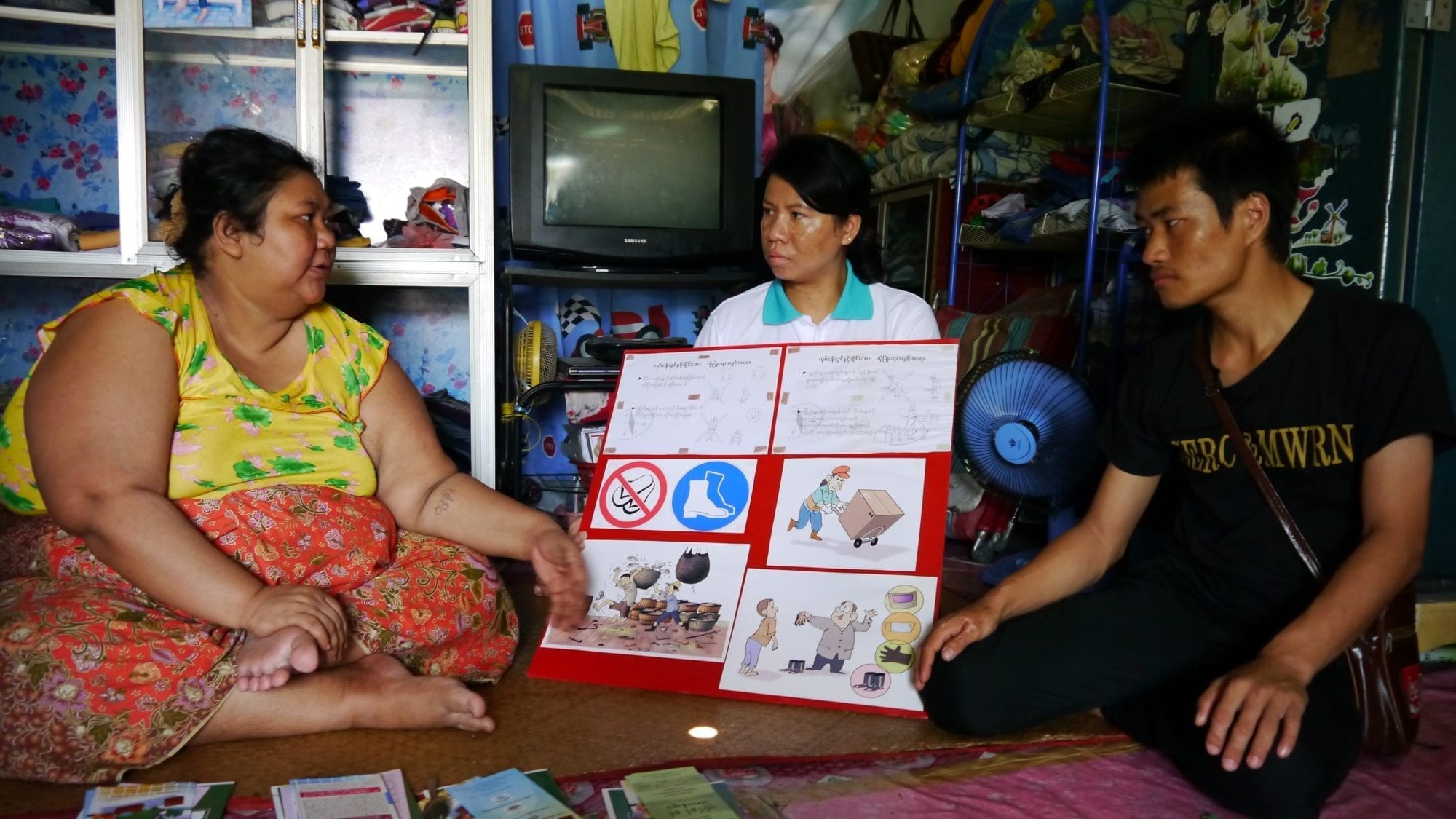Nurul Islam and three other men from his village in Burma’s Rakhine state believed the Rohingya brokers who promised to take them to Malaysia for jobs. Instead, the men were herded at gunpoint deep into a forest with 350 other migrant women, men and children, and told if they did not pay up to $2,300 each, they would be beaten and killed.
Beaten by his captors over four days, Nurul, 30, eventually called his uncle in Malaysia who agreed to pay the traffickers. But after he was released and contacted the police, he was taken to a government shelter where he again was deceived—a government official demanded $560 dollars for his release.
In a rare case of justice for survivors of human trafficking, the official, Anat Hayeemasae, a member of the Satun Provincial Administration Organization, was sentenced yesterday to more than 22 years in prison for human trafficking and ordered to pay Nurul $3,560.
Lawyers Working with HRDF Key to Prosecution
The success resulted from a more than year-long effort by lawyers working with the Human Rights and Development Foundation (HRDF), a Solidarity Center ally. They joined with the Rohingya Association of Thailand to investigate and file charges.
The result, says HRDF Secretary General Somchai Homlaor, “serves the objectives of HRDF’s Anti Human Trafficking in Labor Project to provide legal aid to a victim of human trafficking and to ensure the right of the victim of human trafficking to have access to justice process.”
Anat was found guilty of violating Thailand’s 2008 Anti-Trafficking in Persons Act and its 1979 Immigration Act, among other charges. He was among government officials from the Immigration Office who rescued Nural in March 2014 at Songkhla’s Hat Yai bus terminal.
Massive Human Trafficking in Thailand
Anat’s prosecution is especially noteworthy in an area where massive human trafficking occurs with impunity. In May, hundreds of bodies were found in 139 mass graves at suspected human trafficking camps on the border of Malaysia and Thailand. According to local news, Malaysian border patrol knew about the camps for 10 years, says Karuppiah Somasundram, education director for the Malaysian Trades Union Congress (MTUC). No arrests have been made.
Last month, the U.S. State Department retained Thailand on the bottom ranking of its annual Trafficking in Persons Report. The “Tier 3” ranking means Thailand is failing to comply with minimum standards to address human trafficking.
Migrant workers, primarily from Burma and Cambodia, work in slave-like conditions on Thai fishing boats, fueling the country’s $7 billion seafood export industry and making it the world’s third-largest exporter. Many migrant workers toil in forced labor and are held against their will on the boats where they are beaten and even killed. A Guardian series last year reported on the horrors endured by migrant workers who often are tricked by labor recruiters and sold into bondage. Estimates of migrant workers in Thailand range from 200,000 to 500,000.
A 2013 survey by the International Labor Organization (ILO) of nearly 600 workers in the Thai fishing industry found that almost none had a signed contract, and about 40 percent had wages cut without explanation. Children were also found on board. A 2009 U.N. report found that about six out of 10 migrant workers on Thai fishing boats reported seeing a co-worker killed. In another report, migrant workers say they were trafficked and forced to work for up to 20 hours per day with little or no pay. Many migrant workers in Thailand are in debt bondage.

